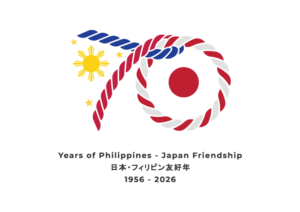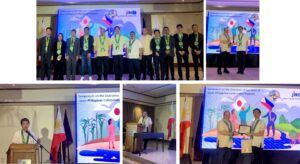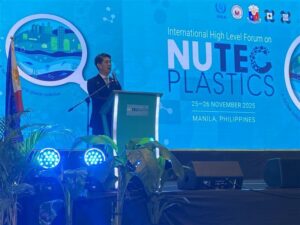President Rodrigo Duterte used quite a different approach in putting forth his economic agenda in a three-leg foreign trip: trade balance between three Middle East countries and the Philippines.
The Chief Executive meant for the country to not just continue importing oil from Saudi Arabia, Qatar and Bahrain, but for these countries to import more Philippine products into their respective markets.
In the same vein, the President encouraged the three countries’ officials to help invest on Philippine soil, which would translate into thousands of jobs for Filipinos.
Quite a clever strategy, as this new balancing chip is expected to help boost the country’s economy in the next five years or so under the Duterte administration.
Already, the government boasts of having clinched almost two billion dollars worth of investments in diverse sectors from the three oil-rich countries.

Let’s see how this plays out for the country’s interest:
Saudi Arabia
The Philippines, through the Phlippine Economic Zone Authority, was able to close USD 469 million-worth of business-to-business (B2B) Letters of Agreements (LOIs). This translates to creating 16,000 new jobs in pharmaceutical generics, property development, medical tourism, ports warehouses, agro-industrial economic zones and Halal food processing industry zones and tourism. PEZA is led by the Trade and Industry Secretary Ramon Lopez as Chairman and (agency) Director General Charito Plaza.
Bahrain
Representatives from PH company AMA Group Holdings Corporation and Bahrain company Nader & Ebrahim Sons of Hassan Company W.L.L. (represented by Ebrahim Hassan Mubarak Alameer) signed an MOU. The parties agreed to acquire, by lease from land owners, an area of 10,000 hectares with additional investment of USD 250 million over three to five years to grow various fruits and agricultural products. This will initially create 3,500 new jobs and, when production is fully operational, employment will go up to 40,000, yielding a total volume of 560,000 MT, with an annual export value of USD 280 million.

Qatar
Thirteen projects were signed amounting to USD 206 million, generating close to 6,000 workers. These projects will be in the areas of retirement village/hotel/ tourism economic zone in Romblon, Davao or Cebu; information technology (IT) and economic zone management services; hospitals and medical tourism; poultry and Halal food processing; digital marketing; manufacture of coco peat/coco fiber in South Cotabato; manufacture and export facility of nanostructured carbon; and an agro-industrial economic zone in Palawan.

Aside from commitments to expand imports from PH, several initiatives to facilitate investments were signed.
Foremost among which is the Investment Protection and Promotion Agreement (IPPA), which should facilitate the flow of bigger sized Qatar investments into PH. This agreement, the negotiations of which started nine years ago, will now make PH an eligible recipient of investment funds from the Qatar Sovereign Fund. Initial estimate of investment allocation is USD 1 billion.
The IPPA will basically provide internationally-recognized investors their rights and safeguards.
“Qatar investors will be treated fairly, will not be disadvantaged and will facilitate identification of opportunities and entry of investments,” Sec. Lopez said.
The secretary added the chief executive’s visits to these Middle East countries significantly strengthened the relationship between President Duterte and each of the leaders in the three nations, resulting in stronger commitment to building Philippine up bilateral trade and investments with Bahrain, Qatar and KSA.
“All these initiatives form part of ‘Dutertenomics’ that will create more job and income opportunities, and improve the lives of many Filipinos. These opportunities will be dispersed throughout the country, uplifting the lives of the people in the provinces and addressing inequality in the country,” he noted.
The Philippine trade officials also told investors that the country is the 2017 chair of the ASEAN regional meetings. At the top of its agenda is steering the ASEAN to full economic integration, which means that by capitalizing on PH’s location, not only will investors be able to access PH market of 105 million, but the Philippines will be their gateway to the bigger ASEAN market of 620 million people.
President Duterte also encouraged officials and representatives from the three Middle East countries to explore cooperation in several prime industry sectors in the Philippines where investors can take part in, including agribusiness & agriculture; energy efficiency technologies & renewable energy; infrastructure/public-private partnership (PPP) projects; IT-business process management shared services; oil & gas; and tourism.
***Photos courtesy of the Department of Trade and Industry


